6th Engineering Graduate Research Conference (EGRC)
The EGCC, EAT donors, and our partners hope that you will use the EGR Conference as an opportunity to push yourselves to keep our college at the forefront of engineering education and share the importance of your research with the community. You will also have the opportunity to meet people from diverse disciplines to discuss your research further.
This event is open to all graduate students (Master's and Ph.D.)
Academic and industrial juries will evaluate the winners based on research quality, results, and communication skills.
Registration deadline: August 22nd, 2025
Best Posters will be awarded Cash Prizes and Gifts
To register, please click below👇
Winners
1st Place: Lauryn Campbell
2nd Place: Ravi Patel
3rd Place: Kiranbir Kaur
4th Place: Akinola Ogbeyemi
5th Place: Runrong Yin
Schedule
| 10:30 - 11:00 | Guest and Student Arrival-Swag Bag Pick-Up | ||
| 11:00 - 11:10 | Welcome and Introduction to the Engineering graduate research conference (EGRC)-EGCC President | ||
| 11:10 - 11:20 | Welcome Message from the College of Engineering Dean-Dr. Michael P. Bradley | ||
| 11:20 - 11:35 | Keynote Speech from Sigma - Tate Cao | ||
| 11:35 - 11:50 | Keynote Speech from Opus | ||
| 11:30 - 12:15 | Lunch time | ||
| 12:15 - 2:15 | Poster Judging time | ||
| 2:15 | Breakout Session for Judging | ||
| 2:30 | Winner Announcement & Closing Remarks-Dr. Niu | ||
| 3:00 | End of Event |
List of accepted posters
| # | Name | Title |
| 1 | Roghayeh Najafi | Development and Optimization of a Tribo-Electrostatic Separation Process for Dry Fractionation of Faba Bean |
| 2 | Runrong Yin | Synchrotron based X-ray analysis of pretreatment processing effect on canola seed anatomy |
| 3 | David Anaele | Design of a Closed-Loop Thermal Regulation System for a Portable Diagnostic Device |
| 4 | Farzana Haque Reeti | Incorporation of CNC into drilling fluid |
| 5 | Shabnam Izadpanah | Ultrasound Cavitation as a Tool to Modify the Flavor of Pea Protein Isolate |
| 6 | Yugesh Paudel | Development of Biomass based Hydrogels for Slow Release Fertilizers |
| 7 | German Andres Castaneda Suarez |
Evaluation of Canadian Food Processing Residues as Precursors of Renewable Natural Gas via Anaerobic Digestion |
| 8 | Muhammad Fahad | Multi-Precision Posit Multiplier with Dynamic Precision Switching |
| 9 | Lauryn Campbell | Validating Muscle Activity Estimates in Persons with Subacromial Pain Syndrome using the OpenSim Thoracoscapular Shoulder Model |
| 10 | Adit Raj Chalise | Pyrolysis of Spent Bleaching Clay (SBC) to produce biochar for its application in batteries and supercapacitors |
| 11 | Ebrahim | A Memory-Friendly Approach to Sparse Matrix Representation |
| 12 | Sumana Majumder | Salt-Assisted Modification and Hybridization of Tunicate and Flax CNC for Stable Pickering Emulsions. |
| 13 | Rupesh Acharya | Development of Bioherbicides from the aqueous phase of biomass pyrolysis oil |
| 14 | Farzan Hayati | Synergistic Photocatalytic Performance of Biochar-TiO2 Composite for Stormwater Remediation |
| 15 | Minghan Fu | QLABGrad: A Hyperparameter-Free and Convergence-Guaranteed Scheme for Deep Learning |
| 16 | Ravi Patel | From Waste to Pavements: Revolutionizing Concrete with Cellulose nanocrystals |
| 17 | Jingye Chen | A Catalytic Sites Contiguity Study on Atomically-dispersed ZnO-Cu/SiO2 Catalysts to Improve Methanol Formation from CO2 Hydrogenation |
| 18 | Angélica Gatica | Electrochemical recovery of metals from waste household batteries for the synthesis of metallic nanoparticles |
| 19 | Oladimeji Azeez | Dielectric–Thermal Power Conversion Efficiency in RF Heating of Faba Beans: Influence of Moisture Content and Implications for Functional Properties |
| 20 | Yesu Ramya Kandregula | Valorization of Agri-forest biomass for advanced carbon material synthesis via hydrothermal carbonization for supercapacitor application. |
| 21 | Syed Mohsin Shah | AI at Lightning Speed: Smarter Chips for a Smarter Future |
| 22 | Jonathan Blankson | Influence of Blending Conditions on the Miscibility and Stability of Biocrude–Heavy Gas Oil Mixtures |
| 23 | Dinesha Thuvaragan | High-Strength PLA Bioplastics with Improved Modulus and Puncture Resistance |
| 24 | Sagar Raut | Anaerobic digestion of PLA pallets |
| 25 | Bahman | Boosting C₂–C₄ olefins in FTS using K-modified iron catalysts supported on carbon nanotubes |
| 26 | Faizan Ansari | Synthesis and Characterization of Ag-ZnO Thin Film on CoCrMo alloy for Antibacterial Evaluation |
| 27 | Kiranbir Kaur | Valorization of Eggshell Waste into Collagen Peptides and Calcium Carbonate via a Single-Step Extraction Process. |
| 28 | Akinola Ogbeyemi | Blending Indigenous Social and Cultural Values into the Design and Management of Healthcare Facility Projects in Saskatchewan: a Case Study and Perspectives from EPC Rightsholders |
| 29 | Francis | A Computer Vision System for the Assessment of Pig Welfare from Indicators on Carcasses at the Abattoir |
| 30 | Jocelyn Bissonnette | Quantifying metal leaching acid rock drainage in a variety of mine wastes |
| 31 | Ifeyomi Olobayotan | Optimization of Canola Meal Protein Hydrolysate as a Heterotrophic Growth Medium for Euglena gracilis |
| 32 | Garret Churchill | Assessing Alkaline Pretreatment Effects on the Hydrothermal Liquefaction of Canadian Lignocellulosic Residues for Sustainable Fuel Production |
| 33 | Talal Ahmed | Development of Bio-adhesives from plant-based proteins |
| 34 | Amirreza Mahmoudi | Frosting in liquid-to-air membrane energy exchangers (LAMEEs) under subzero air temperatures |
| 35 | abdel elfatah | Toward Predictive Models of Fission Gas-Induced Degradation in U-10Zr Fuel: A Multiscale Approach |
| 36 | Beti Hosseinpour | Microfluidic systems and numerical method |
| 37 | Hira syeda | Dialysis Membrane-Induced Epigenetic Methylation Pattern of Inflammation-Related Genes in Hemodialysis Patients |
| 38 | Neda Rahaei | Understanding of tablet dissolution processes via Synchrotron X ray imaging-based techniques |
| 39 | Muhammad Awais Ashraf |
Flexible 2D MXene-Hydrogel Mechatronics for Micro-Energy Storage in Next-Generation Wearable Applications |
| 40 | Ravichandra Patil | APPLICATION OF IMMOBILIZED FUNGAL LIPASE ON ACTIVATED HYDROCHAR IN FOG WASTE HYDROLYSIS, FOR RNG PRODCUTION |
| 41 | Fousiya Thomas | Passive Removal of Colloidal Suspended Solids, Chloride, and Sodium from Oilfield Water and Soil Slurry Samples Using Mayenite and Zeolite |
| 42 | Alaa Jellab | O₃-Assisted Removal of Emerging Pollutants from Water: Effect of Operational Parameters, Kinetic, and Toxicity Assessments |
List of judges
 |
Christopher Bowman, Ph.D. Tech Transfer Manager, Innovation Mobilization and Partnerships Chris holds a Ph.D. in applied mathematics from the University of Arizona and has extensive experience in supporting research commercialization and collaboration in academic, government and private sectors. He has been a technology transfer manager at the UofS for seven years, he focuses on finding, or developing partners that can take university IP and advance it to market-ready products or services. He is responsible for an expanding portfolio including Engineering, Physical Sciences, Information and Communications Technologies and Agriculture. |
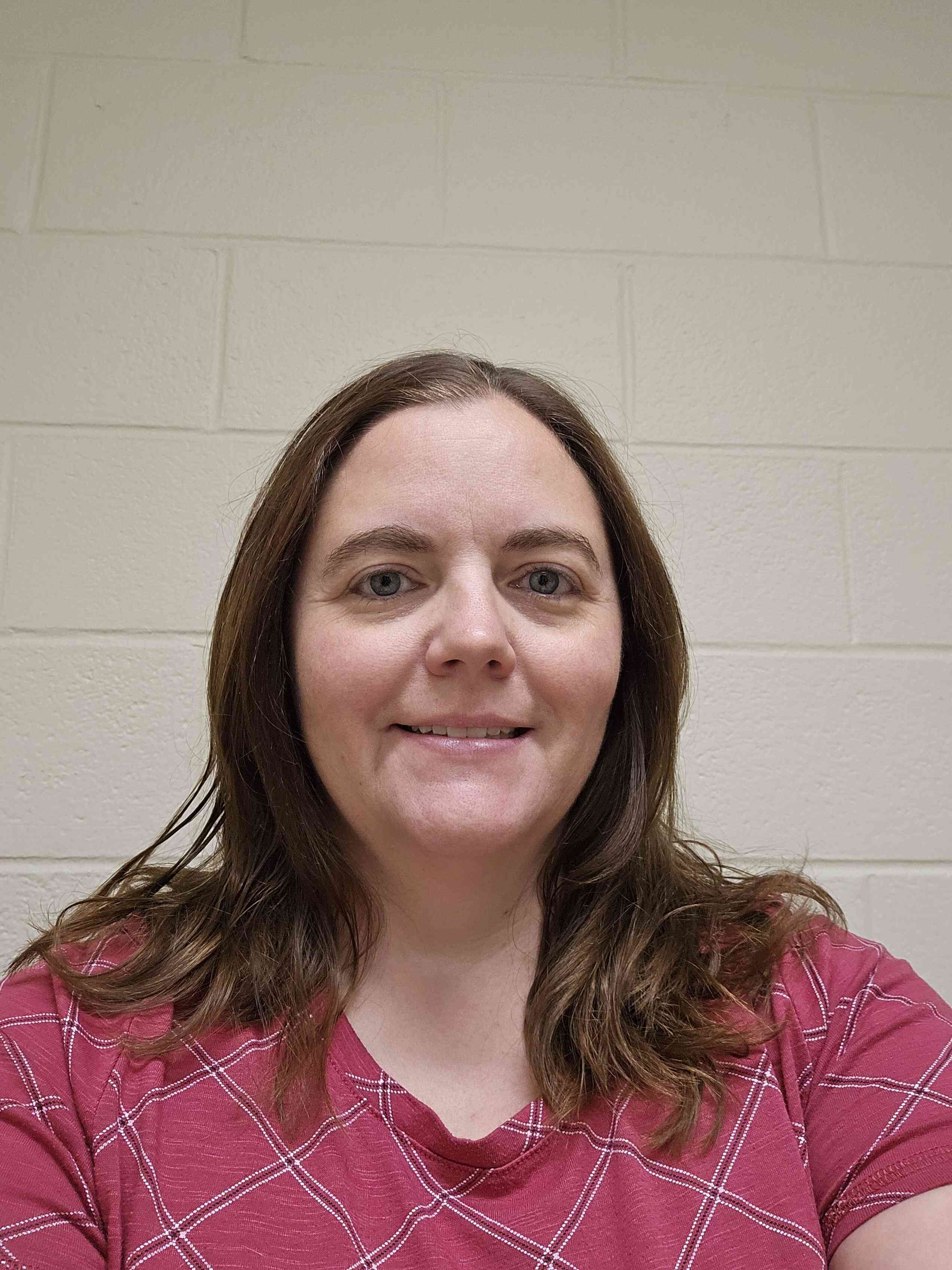 |
Melanie Fauchoux, Ph.D., P.Eng. Research Associate Dr. Fauchoux has been working in the field of heat and moisture transfer since 2013 when she completed her PhD in Mechanical Engineering. Much of this time has been spent working as a Laboratory Engineer in heat transfer, assisting graduate students with their research projects by providing technical expertise. She is currently working as a Research Associate in the HVAC research group at the University of Saskatchewan.
|
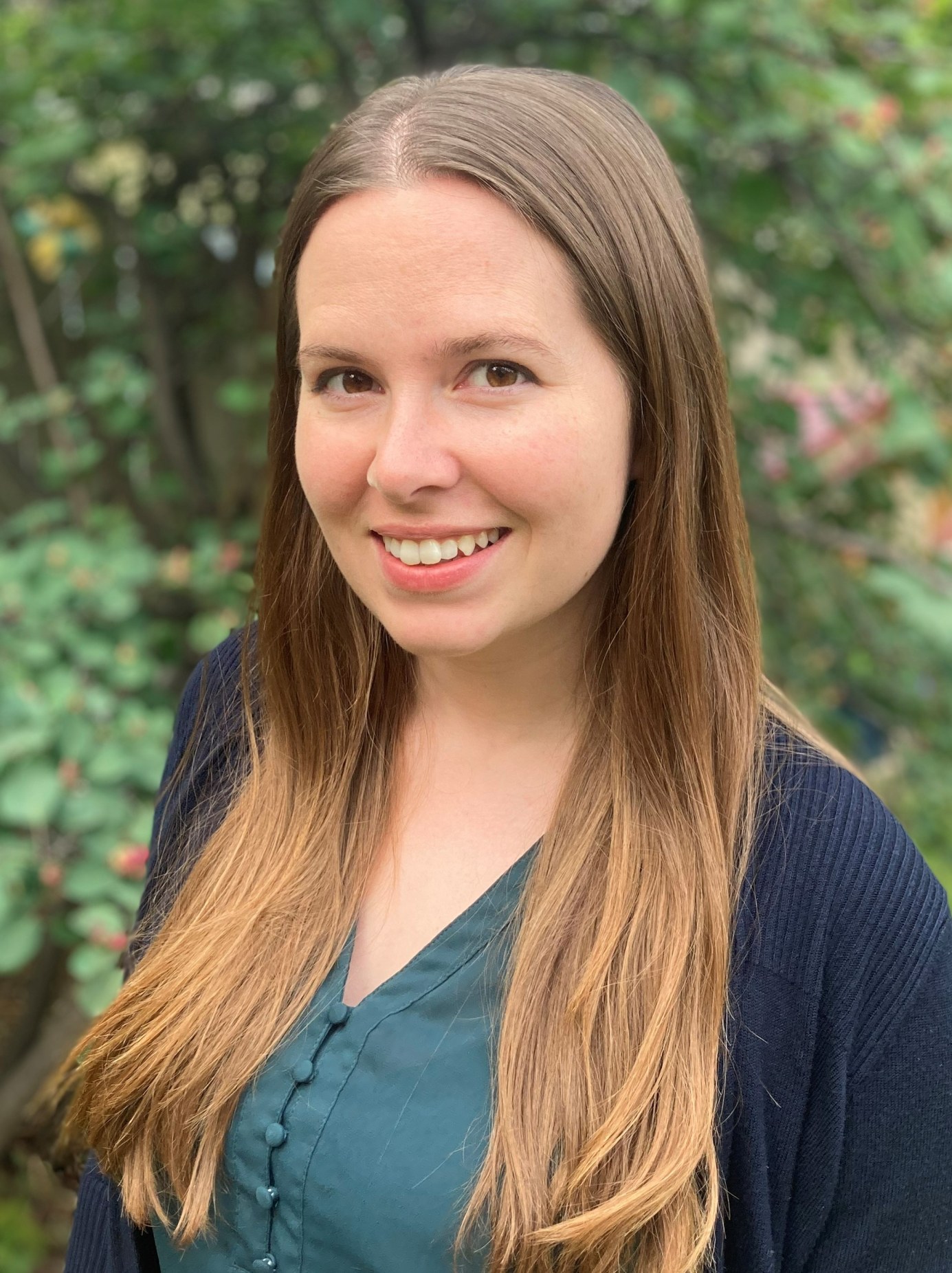 |
Reisha Peters, Ph.D. Assiatant Professor, Chemical and Engineering Dr. Reisha Peters is an Assistant Professor in Chemical and Biological Engineering. Her expertise lies in the application of spectroscopy in the ultraviolet, visible, and near-infrared regions. Her recent work focuses on advancing leaf optical modeling, which has important implications for precision agriculture. From 2024 to 2026, Dr. Peters is a USask Sustainability Fellow working towards embedding sustainability in engineering education.
|
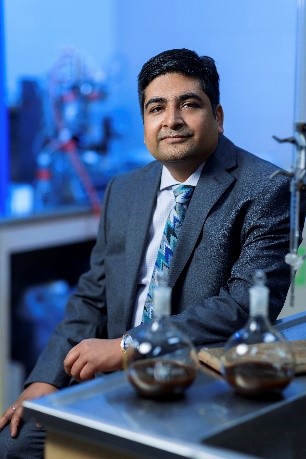 |
Bishnu Acharya, Ph.D. Saskatchewan Ministry of Agriculture Chair in Bioprocess Engineering Associate Professor Dr. Bishnu Acharya is an Associate Professor in the Department of Chemical and Biological Engineering at the University of Saskatchewan and the Saskatchewan Ministry of Agriculture Research Chair in Bioprocess Engineering. His research expertise lies in the area of bioprocessing and conversion, particularly in the emerging area of conversion of biomass to bioproducts for chemical, material, and energy applications by adopting a circular bioeconomy approach. Dr. Acharya’s research investigates biomass characterization, thermochemical (torrefaction, hydrothermal, pyrolysis, gasification, combustion), biological (fermentation and anaerobic digestion) and chemical synthesis processes for the conversion of low value biomass to high value bioproducts. He is also developing research capacity to analyze the biopolymer and biobased materials at the University of Saskatchewan. Before joining University of Saskatchewan, he worked at the University of Prince Edward Island. Prior to that he worked for Greenfield Research Incorporated in Halifax, Canada as General Manager - Projects where he led several design and training projects for the development of clean technology. Dr. Acharya is awarded with Engineers PEI – Engineering Excellence Award (2019) for his professional contribution towards the development of innovative bioproducts from nuisance biomass. His scholarly achievements are recognized with UPEI Faculty Association - Scholarly Achievement Award (2019), and Graduate Faculty Appreciation Award (2018). Dr. Acharya research work has been published in 5 book chapters, 70 journal articles and several conferences. He has 1 US provisional patent filed (with another under consideration). In last 7 years, he has supervised/co-supervised more than 40 HQP and has received around 3 million dollars of funding to support his research activities. Dr. Acharya is also a founding member and scientific advisor of a spin off company that focuses on the commercialization of tunicate-based cellulose nanomaterials. He has bachelor’s degree in Mechanical Engineering from Tribhuvan University - Nepal, Masters in Energy Technology from Asian Institute of Technology – Thailand and Doctoral Degree in Mechanical Engineering from Dalhousie University – Canada. |
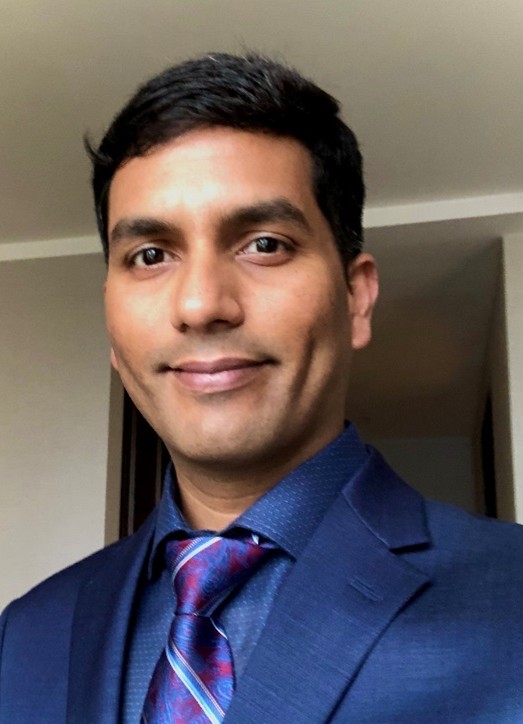 |
Nandhakishore Rajagopalan, Ph.D. National Research Council of Canada Dr. Nandhakishore Rajagopalan is the Team Lead for the Future Agri-food Science and Technologies team at the National Research Council of Canada (NRC), Saskatoon. He obtained a PhD degree from the National University of Singapore in 2008 and carried out his Post-Doctoral studies at the University of Heidelberg, Germany. Dr. Rajagopalan joined the NRC as a Research Officer in 2011. He was appointed as an Adjunct Professor at the Department of Chemical and Biological Engineering, College of Engineering at the University of Saskatchewan in November 2021. He has over 20 publications in reputed peer-reviewed scientific journals and holds a patent for the identification of a peptide with biopharmaceutical applications. His scientific accomplishments include the development of a potent synthetic analog of the plant hormone abscisic acid and the characterization of a plant membrane transport protein that provides durable resistance against leaf rust disease in wheat. He has received multiple international awards and recognition, such as, the Young Scientist Award from the Human Proteome Organization (HUPO), the Boehringer Ingelheim Fonds Award and the Alexander von Humboldt Foundation Fellowship. Recently, under NRC’s Sustainable Protein Production strategy, he has built a team to establish capabilities in food processing technology development, food chemistry and foodomics. |
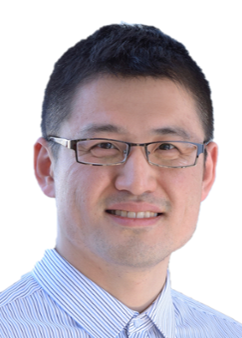 |
Tate N. Cao, P.Eng, MBA Assistant Professor Tate N. Cao is an Assistant Professor in the Ron and Jane Graham School of Professional Development at the University of Saskatchewan. He is the La Borde Chair in Engineering Entrepreneurship and teaches courses on engineering technology management, product design, and entrepreneurship. His research interests include 3D printing in tissue engineering and healthcare, smart farming technologies, and entrepreneurial practices. He has founded and directed the SIGMA Educational Skill Accelerator program and serves on several boards, including the Asian American Innovation Alliance, Co. Learn, Tech Innovation and Engineering Entrepreneurship group at CEEA, and the Pan Canadian Smart Farm Network. Prior to joining USask, he practiced intellectual property law and built and managed startup companies. Prof. Cao received his bachelor's degree in Biomedical Engineering from the Beijing Institute of Technology and his Master's in Biomedical Engineering and MBA from the University of Saskatchewan. He is one of the six USask Sustainability Faculty Fellow and leads the Smart Farming Initiative at the College of Engineering. |
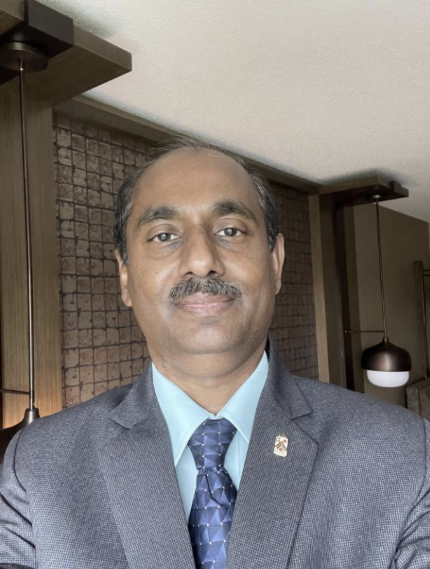 |
Venkatesh Meda, Ph.D. Professor and Graduate Chair, BLE Dr. Venkatesh Meda, P.Eng., is currently a Professor at the Chemical and Biological Engineering Department of College of Engineering, University of Saskatchewan, Canada. He began as a faculty member in 2002 after completing his post-graduate degrees in agriculture & bioresource engineering (M.Sc: 1996; PhD: 2002) from McGill University, Canada. He has established his research and development effort on ‘post-harvest and value added processing’ of agri-foods including biological materials through the utilization of electro-technologies and enhanced inter-disciplinary collaboration at USask. His expertise in utilization of microwave, infra-red, and UV energy in agri-foods has been recognized worldwide. He has established leadership in areas related to ‘microwave material processing’ (e.g, drying) research capabilities, globally. He has supervised over 30 graduate students, PDFs, visiting faculty/scholars from India, Brazil, Iran, China, Cameroon, and Turkey. Examples of projects that Dr. Meda has provided leadership role are: a) value-added engineering and management of agri-food systems b) thermal and non-thermal processing of agricultural, food and bioproducts c) utilization and processing (drying, extraction, dry fractionation) of plant co-products d) process optimization for food safety & quality; and e) innovative technology for food waste reduction and management strategy He is recognized for his expertise in providing strategic leadership, business entrpreneurship education, Internation R & D partnerships and Innovation Enterprise skills related to Agri-food and material processing sector (e.g, plant-based proteins) in the overall value-chain economy. He was recently recognized as a Fellow of the Engineering Institute of Canada and Engineers Canada (EIC, EC), and received a 2022 Educator of the Year award by Saskatoon Engineering Society (SES). Dr. Meda was a recipient of the Usask’s J.W. George Ivany Internationalization Award in 2022-23. |
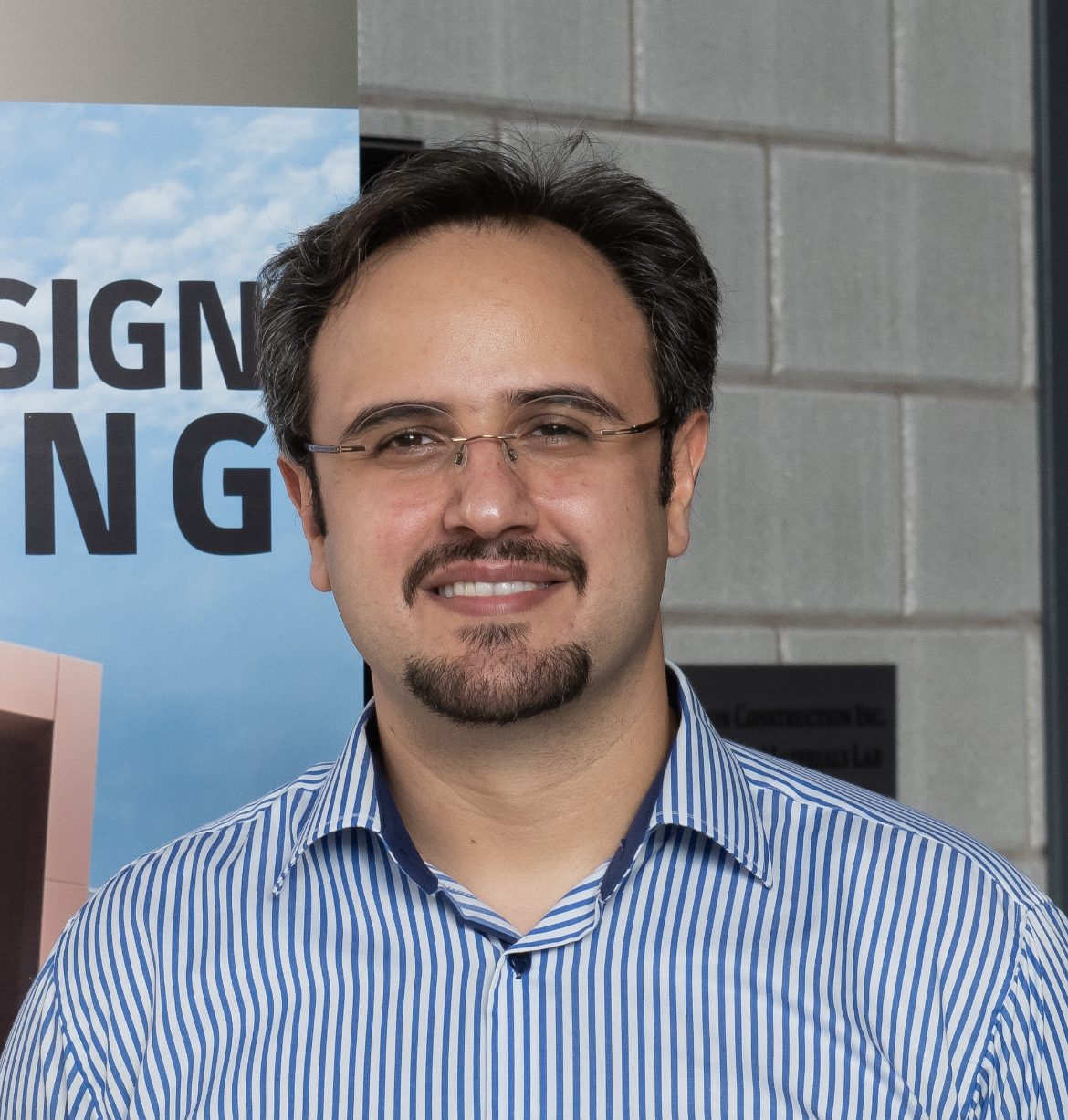 |
Amin Babaeighazvini, Ph.D., EIT
Postdoctoral Researcher Dr. Amin Babaeighazvini is a researcher and educator who currently serves as a Postdoctoral Researcher in the Department of Chemical and Biological Engineering at the University of Saskatchewan, and as a part-time faculty member at St. Peter’s College (University of Saskatchewan), where he teaches General Chemistry, Organic Chemistry, and Chemistry for Engineers. His research expertise spans sustainable nanomaterials, bio-inspired photonic structures, biomass conversion, and advanced materials characterization.
He has authored and co-authored more than 40 peer-reviewed publications, and his work has received national media attention for innovations such as ChiralGlitter, a biodegradable glitter derived from cellulose nanocrystals. In addition to his research and teaching, Dr. Babaeighazvini serves as Guest Editor for special issues in Polymers and Gels, as an editorial board member of Advanced Energy Conversion Materials and Springer Nature’s Discover Concrete and Cement, and serves on the Executive Committee of the Canadian Light Source (CLS).
|

